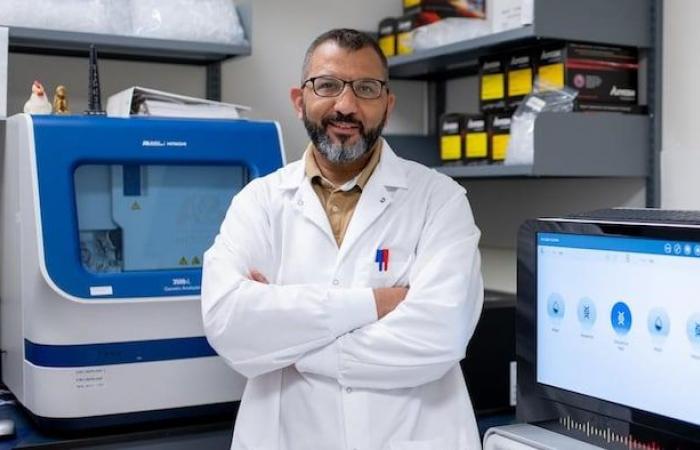Newfoundland and Labrador has the highest proportion of colorectal cancer diagnoses in the world, according to a professor of genomics and bioinformatics.
Professor Touati Benoukraf and his team at Memorial University compare healthy tissues to cancerous tissues and analyze large quantities of genes in search of the causes of colorectal cancer and possible treatments.
Unfortunately, in Newfoundland we have the highest rate, not only in Canada, but in the world
he said.
A possible vulnerability
The researcher suspects a founder effect
which generally strikes populations of low genetic density, for example on an island. A group there may be more vulnerable to a particular disease.
This is one of the reasons why I am attacking this disease here. It is important for me to work on this local scourge.
The professor starts from the hypothesis that cases of colorectal cancer in Newfoundland are based on genetic predispositions rather than lifestyle.
Open in full screen mode
Touati Benoukraf is a professor of genomics and bioinformatics at Memorial University and Canada Research Chair in Bioinformatics in Personalized Medicine.
Photo: Touati Benoukraf
In Canada, the number of colorectal cancer diagnoses is declining.
According to the Canadian Cancer Society, nearly 25,000 people will receive this diagnosis in 2024, or approximately 10% of cancer diagnoses that year.
In Newfoundland and Labrador, nearly 640 people have been diagnosed with colorectal cancer this year and 280 will die from the disease, according to the association’s director of surveillance, Jennifer Gillis.
Young people increasingly affected
The decline in the incidence rate mainly concerns older adults while it increases for younger people.
notes the epidemiologist.
Open in full screen mode
Tumors can lodge in the intestine.
Photo : iStock / ChrisChrisW
Jennifer Gillis believes that increased screening has reduced the rate of colorectal cancer among people aged 50 and over, but does not explain the increase in diagnoses among younger people.
Nearly half of colorectal cancers could be prevented.
To prevent colorectal cancer, doctor Gillis recommends asking about family history, reporting body changes to your doctor, and participating in screening for people ages 50 to 75.
Touati Benoukraf advises practicing physical activity, limiting alcohol and tobacco consumption and eating a healthy diet.
Based on information from Sarah Antle, CBC






